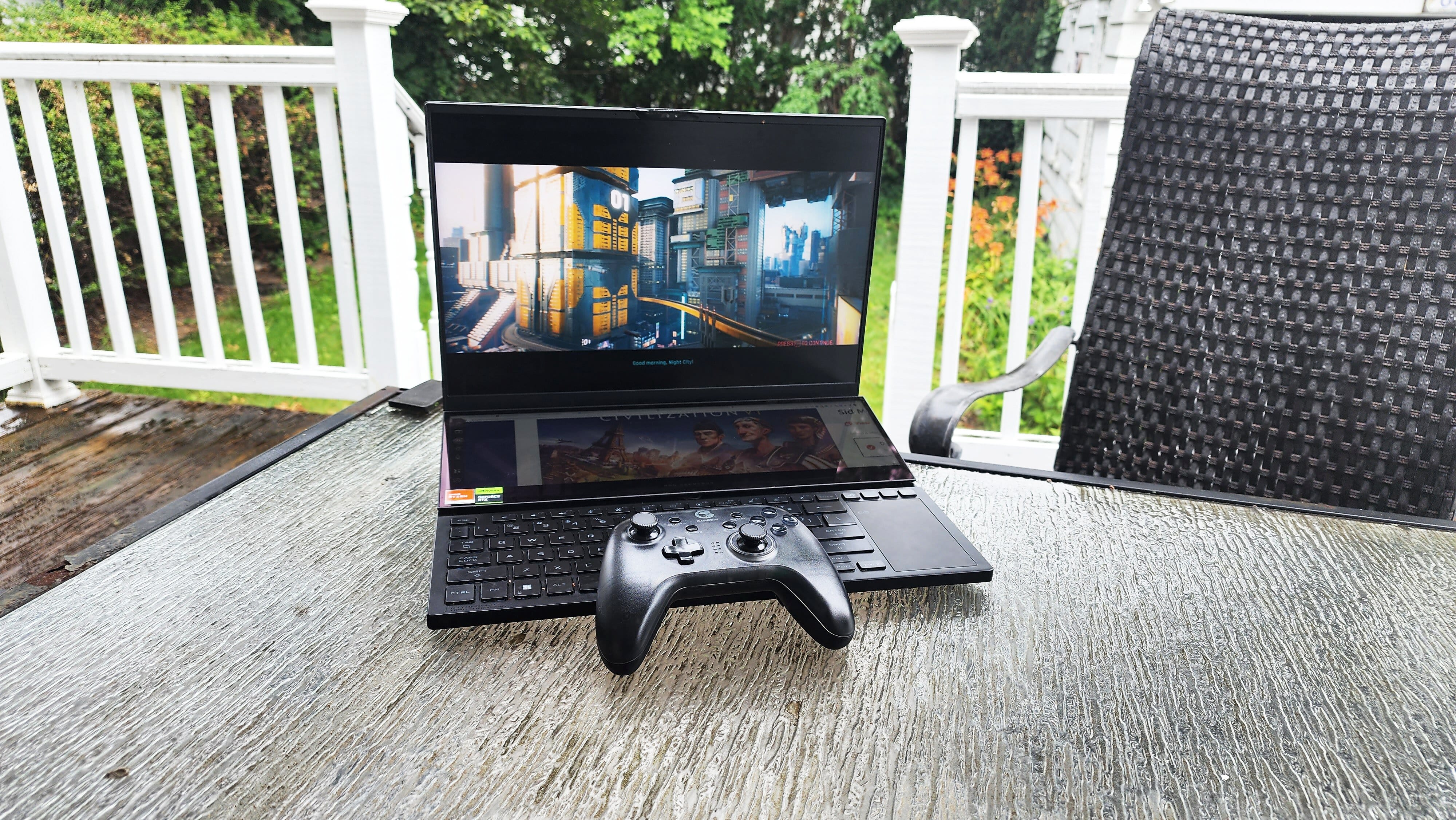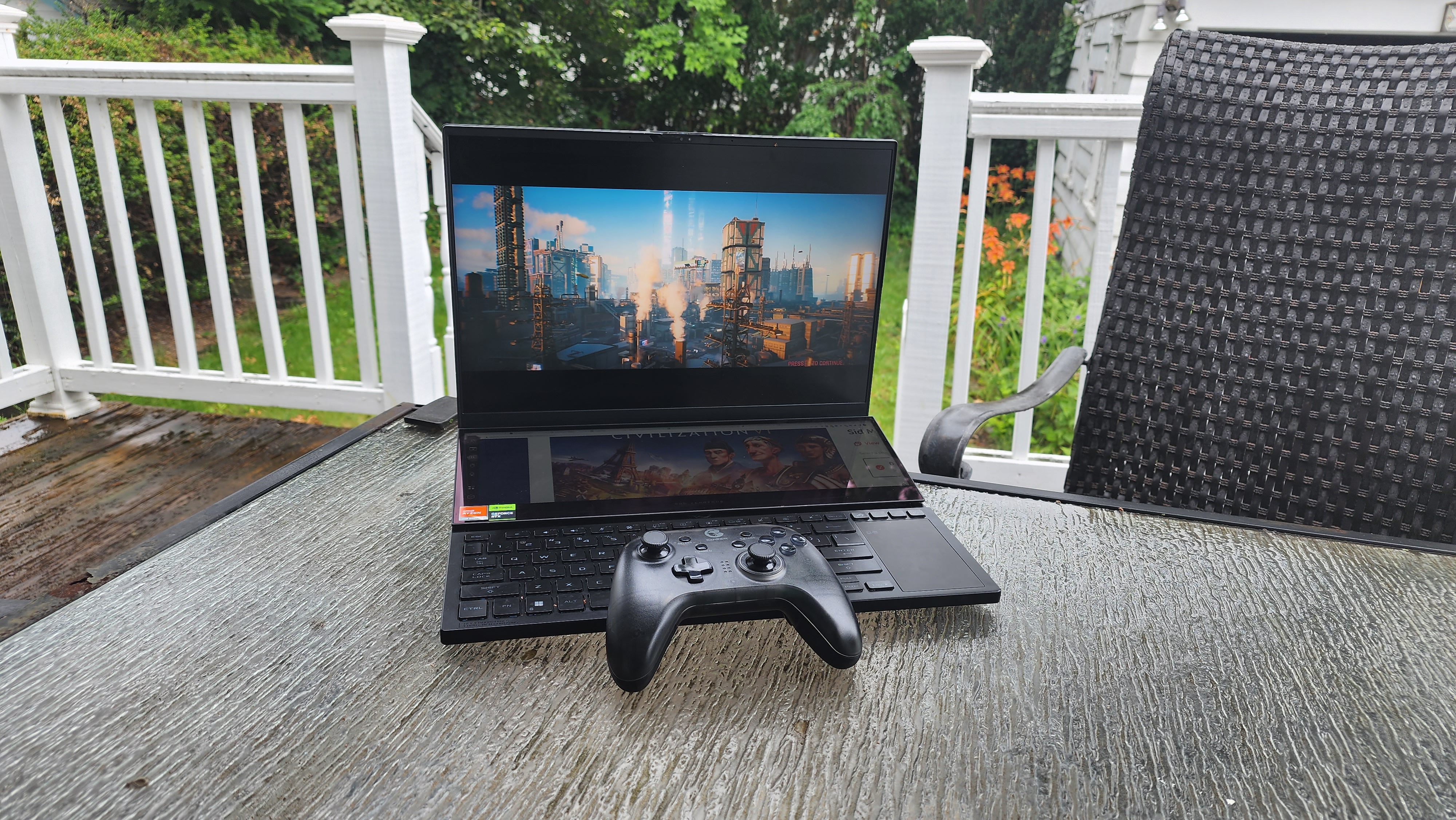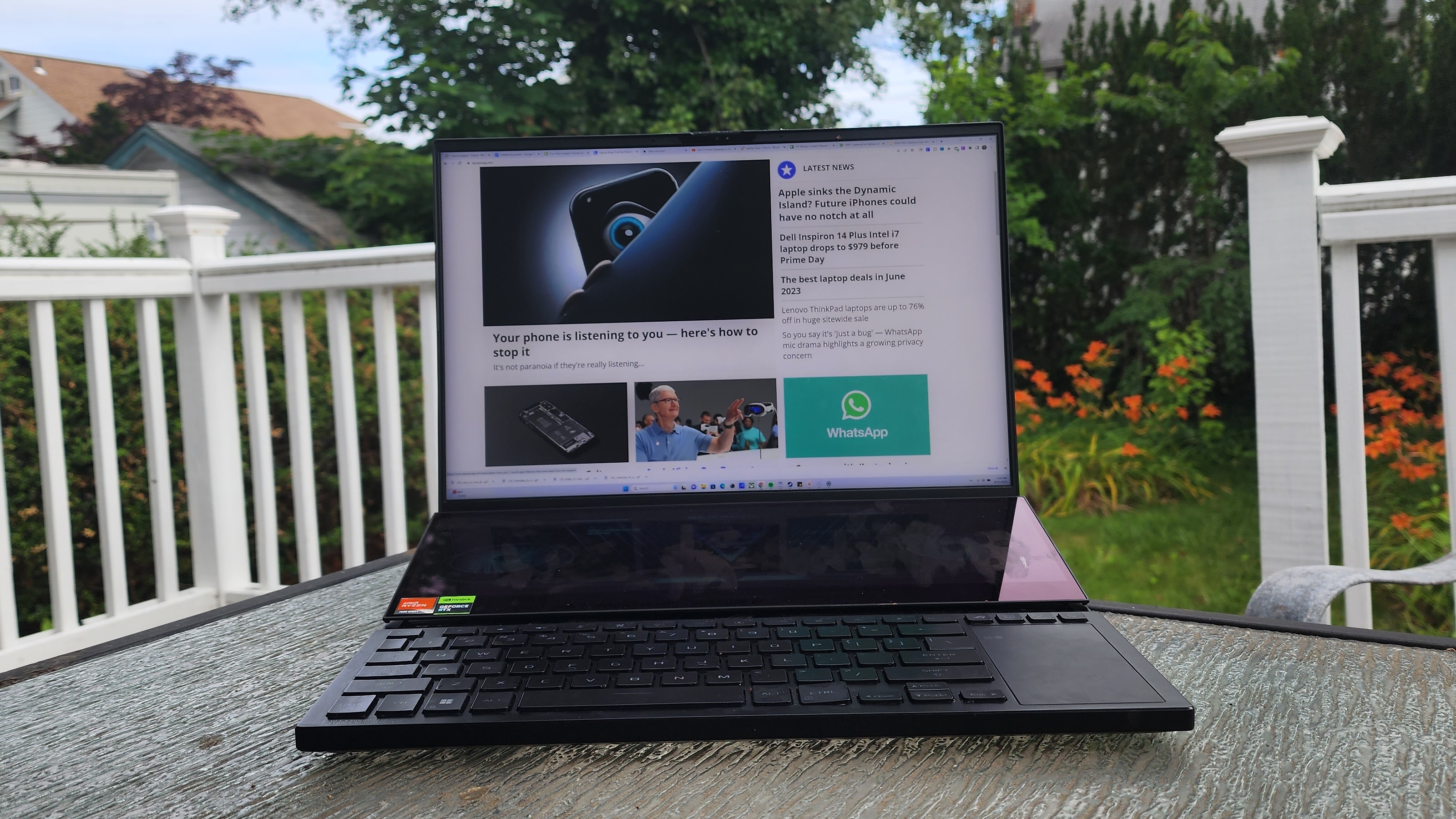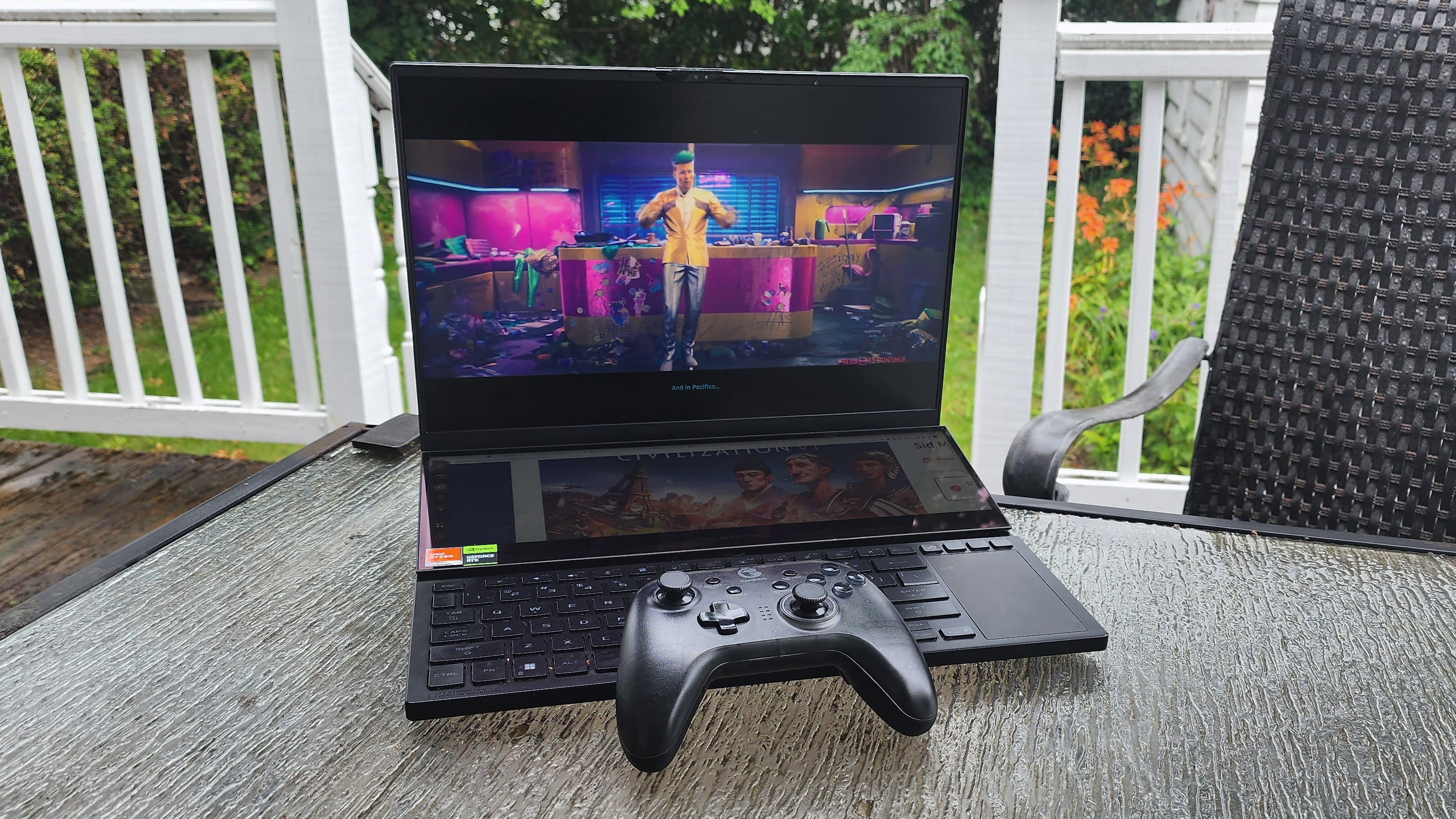We’ve all been there. You’re playing a game on your gaming laptop, and suddenly, you’re tip-toeing through a dark scene. “I can’t see a darn thing!” you say. You try to to turn up the brightness, but to your dismay, it’s already maxed out.
Now all you can do is squint, bring your eyes closer to the screen, and hope that your limited visibility doesn’t thwart your gameplay. Unfortunately, compared to traditional laptops, gaming laptop displays are often dim or deliver middle-of-the-road brightness, particularly cheap gaming laptops (under $1,500).
According to our data, cheap gaming laptops typically have a 286-nit brightness average, which is tragic; you’ll be squinting for dear life on those panels. Pricier gaming laptops offer more luminance, but they hover around the 400-nit brightness mark, which is OK — not bad, but not excellent either.
However, to my surprise, there is a gaming laptop that I recently tested that has the brightest display I’ve ever seen in its category.
The gaming laptop with the brightest display I’ve ever tested
Say hello to the Asus ROG Zephyrus Duo 16, a dual-screen, high-performance gaming beast that delivers the brightest display I’ve ever tested: a whopping 684 nits of gorgeous luminance.

Interestingly, Asus’ marketing materials say that the Duo 16 offers a 1,000-nit display, but according to our in-house display testing, this dual-screen gaming laptop is about 300 nits short of that, but even with this delta, the Duo 16’s striking panel is the most brilliant amongst its competitors.
Its rivals, the Razer Blade 16 and the MSI Raider GE78 HX, only deliver 467 and 412 nits of brightness, respectively, so with the Duo 16, you’re getting an extra 200 nits compared to other similarly specced competitors.
Let me give you a rundown on the Duo 16’s display specs (as tested):
- Size: 16-inch
- Technology: mini-LED
- Aspect ratio: 16:10
- Response time: 3ms
- Refresh rate: 240Hz
- Resolution: 2560 x 1600 pixels
- Certifications: Pantone Validated, VESA DisplayHDR, and Dolby Vision
Interestingly, Asus claims that the Duo 16 covers the 100% of the DCI-P3 color gamut, but imagine our surprise when our in-house testing discovered that its display exceeded that figure, covering 121% of the DCI-P3 space.

As far as color accuracy (Delta-E score) is concerned, the ROG Zephyrus Duo 16 2023 delivered a score of 0.20 (closer to zero is better), which beats the average premium gaming laptop score of 0.25.
Testing the Duo 16’s brightness
Typically, bringing a gaming laptop outside is a no-go because the display isn’t the easiest to see, particularly during bright, sunny days. However, when I brought the Duo 16 out to the backyard, the contents were crisp, clear and bright.

I couldn’t say the same for the 14-inch, second display (ScreenPad Plus), unfortunately. We didn’t record the brightness average for it, but you can tell that it’s significantly dimmer compared to the main display. You can’t see a damn thing on it.
I also tested the Duo 16’s brightness while running some dark scenes from Cyberpunk 2077, and still, everything was extremely visible, allowing me to run through the dingiest, darkest bars without squinting to see what lies ahead.

If you’ve ever played those games that require you to set the brightness so that the the logo is “barely visible,” you no longer have to worry about potentially setting yourself for failure. Whether you’re stepping into a dark cave or running away from enemies in the nighttime, the Duo 16 will ensure that you can see every nook and cranny, thanks to its colorful, vivid and bright display.
Bottom line
Want to read more about the Duo 16? Check out our review of the dual-screen beautiful monstrosity. You can also read my “I spent a week with the Duo 16” piece where I dive into my seven-day experience with the Asus laptop as my daily driver.
The Duo 16 is admittedly quite pricy (our review unit has a price tag of $3,999 at Newegg), but it’s worth it for anyone seeking a portable gaming experience that will leave you satisfied across the board.
Back to Gaming Laptops
Source link
 notebook.co.id informasi dan review notebook laptop tablet dan pc
notebook.co.id informasi dan review notebook laptop tablet dan pc